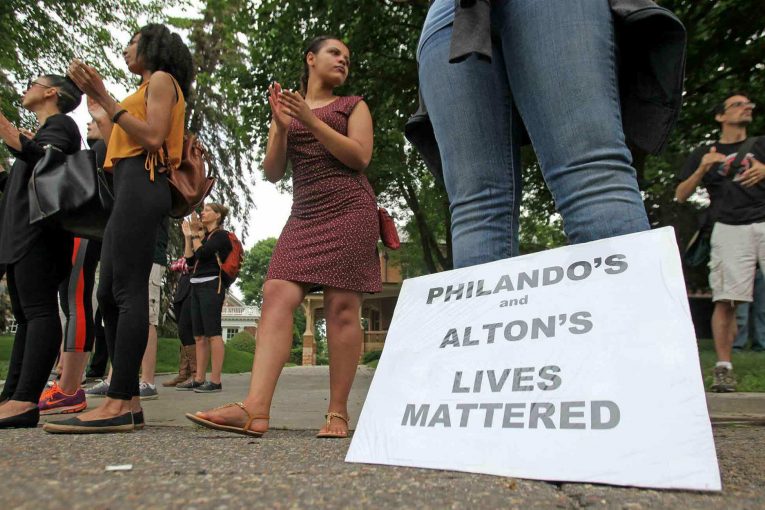
 By Nazish Dkaloakia and Akhi Johnson
By Nazish Dkaloakia and Akhi Johnson
A laundry list of minor traffic violations can lead to tickets and even jail time. In the worst cases, police stops for trivial infractions turn deadly.
But stops for those offenses—tinted windows, a missing inspection sticker, an air freshener dangling from the rearview mirror—don’t make us safer. They do, however, drive racial disparities: study after study shows that Black drivers are more likely to get pulled over for low-level violations than other drivers in the United States. Increasingly, city councils, mayors, and prosecutors are getting behind calls to eliminate these kinds of stops.
Philadelphia recently became the first major U.S. city to ban police officers from pulling drivers over for minor traffic violations. There, local data shows Black Philadelphians are 5.2 times as likely to be pulled over as their white counterparts. And once stopped, Black people are 2.4 times more likely than white people to have their vehicles searched by police.
In November 2021, Philadelphia Mayor Jim Kennedy signed the Driving Equality Act. The law, which bans low-level traffic stops for seven offenses, including driving without registration, will go into effect this year. The new  policy doesn’t decriminalize these offenses, though. Police will no longer stop drivers for these infractions, but they can still issue citations by mail.
policy doesn’t decriminalize these offenses, though. Police will no longer stop drivers for these infractions, but they can still issue citations by mail.
Pittsburgh’s City Council approved similar legislation in December 2021, preventing police from pulling drivers over for some minor offenses, like an improperly placed license plate. Pittsburgh police data also shows that Black drivers are stopped more frequently than other motorists.
A growing number of prosecutors have also moved to stop bringing criminal cases against people who are stopped and detained for minor traffic offenses while police seek evidence of a more serious crime. These low-level traffic stops too often turn into fishing expeditions when officers carry out opportunistic searches for drugs or guns or outstanding warrants.
Most recently, in Vermont, Chittenden County State’s Attorney Sarah George announced that her office will decline to prosecute cases in which evidence was collected during such non–public safety stops.
“In addition to increasing racial bias within our criminal legal system, non–public safety stops also do not improve safety in our communities,” George wrote in a memo announcing the policy.
Philando Castile, Samuel DuBose, and Daunte Wright were all killed during traffic stops for minor violations. One large-scale analysis of 100 million traffic stops across the country found evidence of persistent racial bias. Yes, people of color are stopped, questioned, and searched by police at higher rates than white people—but, critically, Black drivers were less likely to be stopped after sunset, when a “veil of darkness” masked their race.
And officer-initiated traffic stops are dangerous for police, too. “The less law enforcement has to be involved in these types of really low-level traffic infractions—not crimes, but traffic infractions—the better off they will be, and the better off we’ll all be,” George said in a January interview.
These changes come on the heels of others recently made by local and state officials. In 2021, Berkeley, California, passed a series of reforms to address racial disparities in policing and became the first city in the nation to consider removing police from most traffic enforcement. Officials in Lansing, Michigan; Ramsey County, Minnesota; and Virginia, to name a few, have all instituted policies to reduce or eliminate traffic stops for infractions that do not endanger public safety.
“Recognizing the role we play as prosecutors in perpetuating racial inequalities that often result from these types of stops is an important first step in charting a new, less harmful course,” said Ramsey County Attorney John Choi.
On a typical day, police pull over more than 50,000 drivers—20 million people over the course of a year—making traffic stops one of the most common interactions people have with police. When people are stopped for minor infractions, it can lead to unnecessary contact with the criminal legal system—contact that can be traumatic, dangerous, and deadly.
Vera’s Reshaping Prosecution initiative has worked with several offices to eliminate non–public safety traffic stops, and momentum is building around the country as government officials recognize that these stops disproportionately affect people of color while doing nothing to advance public safety.
Nazish Dkaloakia is Senior Writer and Akhi Johnson is Director, Reshaping Prosecution for the Vera Institute of Justice. Originally published by the Vera Institute of Justice on their Think Justice Blog.

So cops could be harmed in a traffic infraction stop, because of the tail light being out? No, because it really was a dangerous person. So now the dangerous person will be free to roam. I’d say more but why bother?